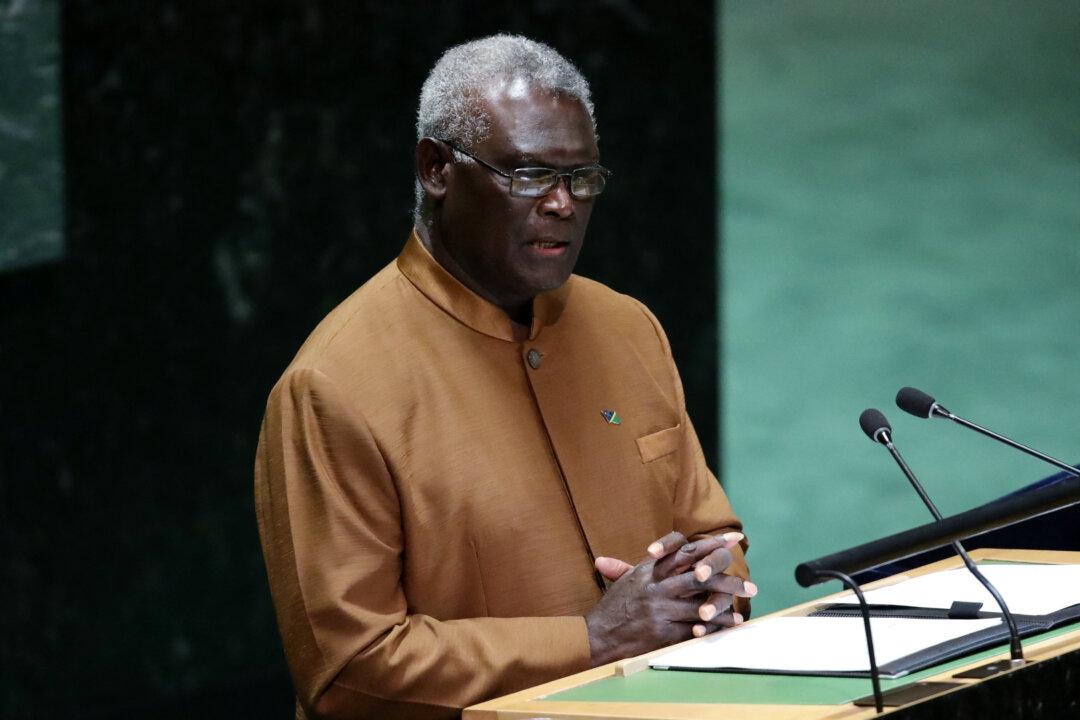The pro-China prime minister of the Solomon Islands, Manasseh Sogavare, has withdrawn from the race to lead the next government following a decision by opposition parties to form a coalition aimed at taking power.
Mr. Sogavare’s ruling Ownership, Unity, and Responsibility Party, also known as the OUR Party, won 15 parliamentary seats in the April 17 elections, less than the 26-seat majority needed to form a government. The opposition CARE coalition—which consists of the Solomon Islands Democratic Party (SIDP), UMI 4 Change, and the Democratic Alliance Party—picked up 13 seats.





